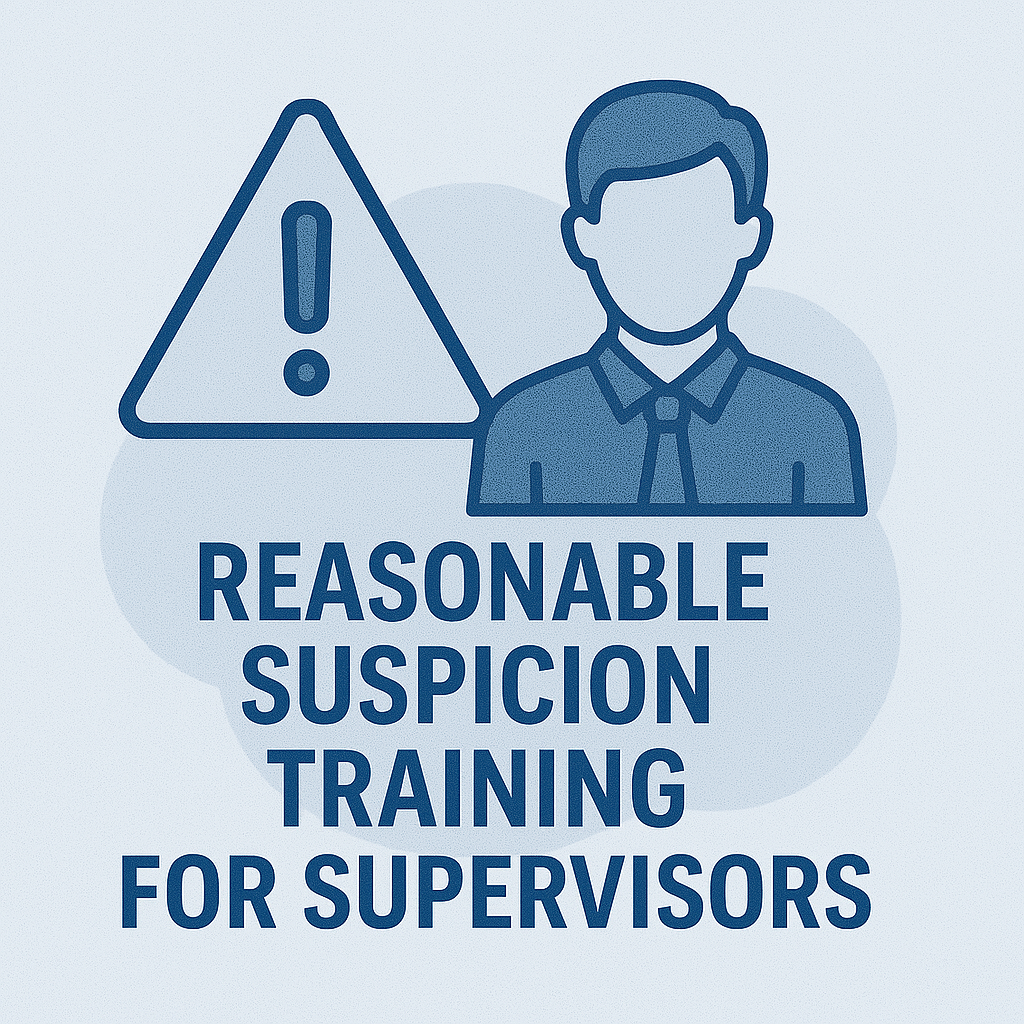
Supervisor Reasonable Suspicion Training
CALL FOR LARGE GROUP PRICING - The Reasonable Suspicion Training for Supervisors course is designed to equip supervisors and managers with the knowledge and skills necessary to identify and respond to signs of substance abuse in the workplace. This training is critical for maintaining a safe and productive work environment.
Use collapsible tabs for more detailed information that will help customers make a purchasing decision.
Ex: Shipping and return policies, size guides, and other common questions.

